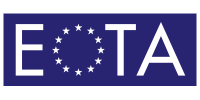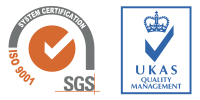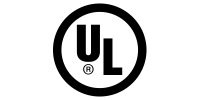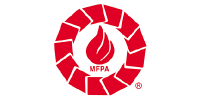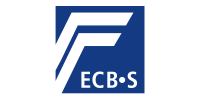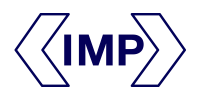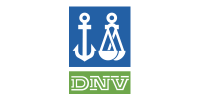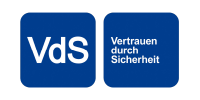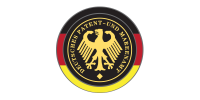High security locks, according to En 1300, are classified in four lock classes (A, B, C and D). High security locks can be electronic or mechanical as key or code lock.
During precisely defined tests, high security locks are tested against the resistance of destructive attacks and manipulations, by using mechanical or electronic tools. Further aspects are the vulnerability against electronic, electromagnetically and physical influences, as well as the susceptibility of corrosion.
The European Technical Assessment (ETA) is a document providing information about the performance of a construction product, to be declared in relation to its essential characteristics.
UKAS The United Kingdom Accreditation Service (UKAS) is the national accreditation body for the United Kingdom, appointed by government, to access organisations that provide certification, testing, inspection and calibration services.
ISO 9001 is a certified quality management system (QMS) for organisations who want to prove their ability to consistently provide products and services that meet the needs of their customers and other relevant stakeholders.
SGS is the world’s leading inspection, verification, testing and certification company.
U.L (Underwriter’s Laboratory, Inc.) is an independent, third-party product certification organization, that rigorously tests products to ensure that they conform to certain safety standards. Once a product is certified, it carries the U.L label to give consumers confidence that the product will provide a certain degree of security and safety. As part of the certification, U.L will routinely visit the manufacturer, to make sure the certified product continues to meet the standard. When it comes to locks,
U.L defines not only specifics on the construction of the lock, but also its resistance to manipulation attacks.
The Malaysian Fire Protection Association (MFPA) was first mooted in 1976 by a group of Malaysian pioneer and expatriates in the fire industry. MFPA has grown into an organized and cohesive organization, representing the manufacturer, contractors and professionals
in the fire trades. The Organization is actively involved in standard writing, through its participation with SIRIM in various working groups on Standard Writing Technical committees, on both active and
passive fire systems.
The European Certificate Body (ECB) is a neutral certification body accredited to ISO/IEC 17065. It issues ECB•S certificates for products of the security industry.
Certified security products may be marked with the blue ECB • S certification mark.
A requirement of the ECB • S certification is a type testing, according to European Standards. The type test is based on an authentic and real-life simulation e.g. of a burglary or a fire. The result of the test leads to the qualification of the product (e.g. resistance grade I, II,
III for a safe). Ongoing audits in the manufacturing plants are necessary to maintain an equal quality.
Institute of Precision Mechanics, one of the oldest and best known institutes in Poland, is a research and development centre, focused on the method of improvement of metal products, by enhancing their corrosion resistance and raising their mechanical properties, especially fatigue strength, and wear resistance in service processes involving friction.
DNV GL is an international certification body and classification society, with main expertise in technical assessment, advisory, and risk management. It was created in 2013 as a result of a merger between two leading organizations in the field – Det Norske Veritas (Norway) and Germanischer Lloyd (Germany).
A certificate that guarantees top quality. VDS Schadenverhütung GmbH is a company belonging to the German Insurance Association (GDV) and operates as an independent certification agency for security technology in Germany.


